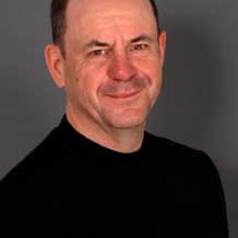
Shane O'Rourke
Senior Lecturer in Modern History, University of York
Shane O’Rourke began his career as a historian of Imperial and Soviet Russia, looking at the history of the Cossacks in particular. He has produced two books on the Cossacks and numerous articles, covering the Cossacks from Muscovite times into the post-Soviet period.
Over the past four years he has began to develop an interest in the history of Brazil and is now engaged on a major research project comparing the emancipation of the serfs in Russia in 1861 and the slaves in Brazil in 1888. Brazil is also figuring increasingly in his teaching and Shane now offers courses on Brazilian as well as Russian history.
Shane’s research interests have changed sharply over the past four years. From being a social historian of Russia, he has now broadened his interests to become a historian of Brazil. His work at the moment is writing a comparison of the emancipation of servile labour in both countries in the second half of the nineteenth century. This will be the first work to compare explicitly Brazil and Russia. As part of this project, he is working on two royal women, Grand Duchess Elena Pavlovna and Princess Isabel of Brazil, and their role in the emancipation of servile labour. An article on Grand Duchess Elena Pavlovna will be published in Autumn 2011 in The Russian Review.
Less ![]()
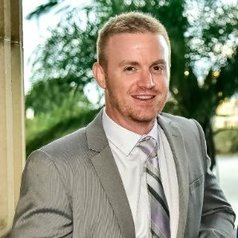
Shane Satterley
Research Assistant and PhD Candidate, Griffith University
Shane is a graduate of Macquarie and Griffith University who is interested in terrorism, international security and humanitarian related issues.
Shane has a Bachelor of Arts in Security, Terrorism, and Counter Terrorism studies. A Masters of Policing, Intelligence and Counter Terrorism and a Graduate Diploma in Criminological Research Studies.
Shane is currently pursuing a PhD at Griffith University looking at global counter-radicalisation and deradicalisation policies.
Less ![]()
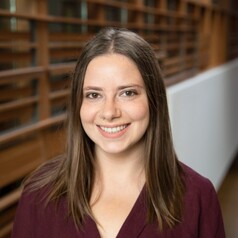
Shani Pupco
PhD Candidate, Smith School of Business, Queen's University, Ontario
PhD Candidate, Smith School of Business
MSc Organizational Behaviour, Smith School of Business
Less ![]()
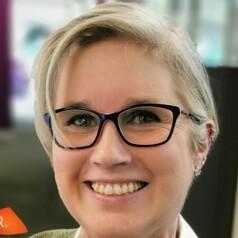
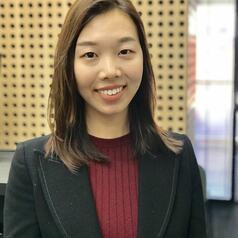
Shania Liu
Postdoctoral Research Fellow, Faculty of Medicine and Dentistry, University of Alberta
I am a Postdoctoral Research Fellow, Faculty of Medicine and Dentistry, University of Alberta, Canada.
My research is to improve the safe use of strong medicines, called opioids, before and after surgery. I have over ten peer-reviewed publications on this topic area. I am the immediate past Chair of the Pain Management Leadership Committee of the Society of Hospital Pharmacists of Australia, the peak professional body presenting hospital pharmacists in Australia.
Less ![]()
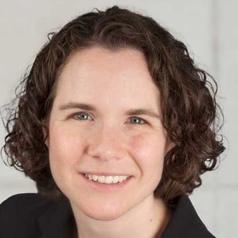
Shanna Pearson-Merkowitz
Professor of Public Policy and Saul L. Stern Professor of Civic Engagement, University of Maryland
Shanna Pearson-Merkowitz is a professor in the School of Public Policy at the University of Maryland College Park. She joined the School in 2021 after spending 12 years at the University of Rhode Island, where she was a professor of political science and director of the Social Science Institute for Research, Education and Policy.
Pearson-Merkowitz’s research and teaching interests focus on political polarization, voting, land use and housing policy, public opinion, and state and local government. She greatly enjoys involving students in the research process and has developed programs in which students help public officials understand the policy environment of social issues and the drawbacks and benefits of different policy choices. She also has run several election exit polls, as well as polling projects in which hundreds of students engage the community to gauge community preferences.
Her research has been funded by the Russell Sage Foundation, the U.S. Department of Agriculture, the Rhode Island Foundation, and the Rhode Island State Government.
Pearson-Merkowitz's co-authored a new book, "The Power of Partisanship," which uncovers the negative consequences of partisanship on various aspects of American life and how political polarization seeps into personal decisions, social interactions and attitudes toward public policies.
Less ![]()
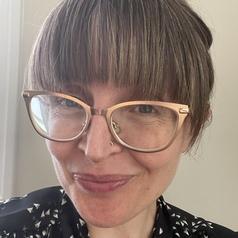
Shannan M. Grant
Associate Professor, Registered Dietitian, Department of Applied Human Nutrition, Mount Saint Vincent University
Dr. Grant identifies as a Scientist, Registered Dietitian (RD), Dietetic Educator and lifelong learner. The focus of her research program (named GrantLab) is community-based and practice-based research, that can be conceptualized as two pillars: 1) Nutrition Care Process/ Medical Nutrition Therapy and 2) Community Outreach and Program Development
Dr. Grant has practiced as a dietitian and wellness professional in several practice settings, including 15-20 years in clinical (including primary, acute care, inpatient and outpatient settings) and community nutrition (including rural, remote, and urban settings). She was core faculty for York University’s Health Coach Program (for five years), an internationally recognized program that trains allied healthcare professionals (including nurses, dietitians, dentists, medical doctors) in contemporary evidence-based counseling, conflict resolution, record keeping and modification communication techniques. A recipient of several awards for her contributions to patient care, communication and education (e.g. The Alumni Early Career Teaching Award [2021], Diabetes Canada Canadian Diabetes in Pregnancy Study Group Award of Excellence [2020]), Dr. Grant is a passionate believer that education activities inform research and practice and vice versa.
GrantLab trains highly qualified personnel (HQP) to develop the knowledge and skills needed to become engaged in all parts of the knowledge-to-action process and to support ongoing exchange about nutrition and foods and complementary approaches to prevention and treatment of disease.
Current projects centre around the following: Two-Eyed Seeing, Shared Decision Making, Integrative Knowledge Translation, Critical Pedagogy, and Train-the-Trainer Model
GrantLab strives to engage in participatory and inclusive approaches, while maintaining academic excellence and scientific rigor.
Less ![]()

Shannen Keyser
Lecturer, University of the Western Cape
Contract lecturer of human anatomy and physiology at the University of the Western Cape in addition to a researcher at the Comparative Spermatology Laboratory in spermatology
Less ![]()
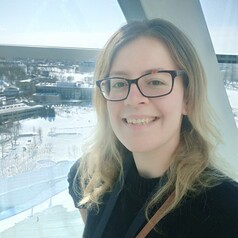
Shannen Mennen
Project Officer Wadawurrung Traditional Owners Aboriginal Corporation, Indigenous Knowledge
Shannen Mennen is a Wadawurrung woman and Project Officer at the Wadawurrung Traditional Owners Aboriginal Corporation.
Less ![]()
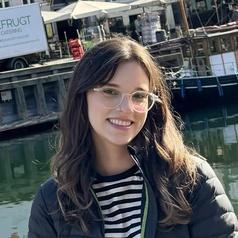
Shannon D'Urso
PhD candidate, Institute of Molecular Biology, The University of Queensland
Postdoctoral researcher at Aarhus University in Denmark. Interested in psychiatric genetics, genetic epidemiology, and population genetics.
Less ![]()
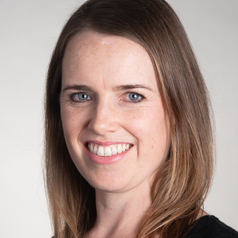
Shannon Davis
Lecturer in Landscape Planning, Lincoln University, New Zealand
I am a Senior Lecturer in Landscape Planning in the School of Landscape Architecture, Lincoln University. I am a research Theme Leader within the Centre of Excellence: Designing Future Productive Landscapes, where i actively research and publish in the areas of agricultural urbanism, peri-urban agriculture, and landscape planning.
Less ![]()
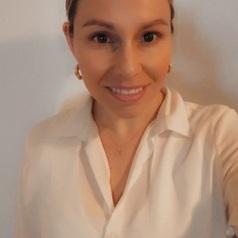
Shannon Giannitsopoulou
Doctorate of Education candidate, University of Toronto
Shannon Giannitsopoulou (she/her), MA, PMP, is a critical scholar and social justice practitioner living in Tkaronto. Having worked in equity roles at the University of Toronto’s Faculties of Medicine and Kinesiology, she is passionate about health justice. She is a Doctorate of Education candidate in OISE’s Social Justice Education Program. Shannon is also the co-founder of femifesto, a Tkaronto-based grassroots collective that strives to shift rape culture to consent culture.
Less ![]()
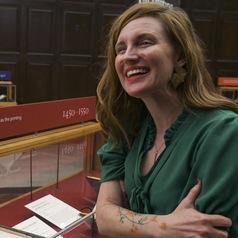
Shannon McHugh
Associate Professor of French and Italian, UMass Boston
Shannon McHugh is the Molina Fellow in the History of Medicine & Allied Sciences at The Huntington and Associate Professor of French and Italian at the University of Massachusetts Boston. Her research focuses on early modern literature and gender, with emphases including lyric poetry, the Counter-Reformation, and the history of participatory fan culture. Her new book, 'Petrarch and the Making of Gender in Renaissance Italy' (Amsterdam University Press, 2023), examines how men and women of the Italian Renaissance used poetry to construct new, fluid, and sometimes radical gendered possibilities. At The Huntington, she is researching her second book, studying the history of women’s reproductive bodies by comparing early modern medical texts’ depictions of childbearing, pregnancy loss, birth, and nursing with those found in poetry by men and women from Italy and France. Her research has taken her to places ranging from the Vatican Secret Archives to the Walt Disney Imagineering Library.
Less ![]()
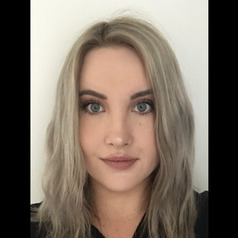
Shannon Muir
Lecturer in psychology, Edith Cowan University
Shan has a Bachelor of Psychology with Honours and PhD from Curtin University. Shan’s mixed-methods PhD thesis explored the framing, predictors, and associated consequences of online shaming. She is experienced in designing and carrying out various quantitative, qualitative, and mixed-methods research projects, and has conducted research in both academic and industry settings. Shan has also worked in higher education in a teaching capacity for the past six years, mainly teaching research methods and general psychology units. Her primary research interests relate to crime and justice related issues, but Shan is also interested in various social psychology topics, behaviour in online spaces, and the wellbeing of vulnerable populations. Example research topics of past projects Shan has been involved in include: identifying early warning signs of intimate partner violence, non-fatal strangulation, public attitudes towards sex offenders, online shaming, and wellbeing and healthcare access for young people in out-of-home-care during COVID-19.
Shan works full time in a combined lecturing and research role in the School of Arts and Humanities at the ECU Joondalup campus.
Less ![]()

Shannon Murray
Research assistant at the Substance Use Research Group and PhD Candidate, University of South Wales
I am currently a doctoral student at Cardiff University conducting research into young gay and bisexual men's experiences of IPV and a research assistant within the Substance Use Research Group (SURG) at USW. We are working on a number of projects such as the evaluation of the Gwent heroin and crack cocaine action area, lessons from COVID-19 on substance use service provision, the impact of minimum pricing for alcohol on drinkers and their families in Wales and substance use and related behaviours among university students as part of the Higher Education Alcohol and Drugs (HEADS) programme.
I was awarded funding in 2021/22 in collaboration with Professor Katy Holloway, Dr Marian Buhociu and Visiting Professor Rhian Hills (Senior Drug Policy Manager for Welsh Government) from USW's Knowledge Exchange and Innovation Fund (KEIF) to undertake a feasibility study that focuses on substance use among LGBTQ+ communities.
Our research project focused exclusively on LGBTQ+ communities and sought to understand why some people in these groups use drugs and/or alcohol and why there is an underrepresentation of these groups within drug and alcohol services. It is important to understand the experiences of people from within the LGBTQ+ groups and to provide them with a voice, as they are at a greater risk of hazardous alcohol and drug use than heterosexual cis-gendered men and women.
From the findings of this important research, a staff toolkit was co-created for substance use services in the UK alongside staff from GDAS, using the responses obtained from participants. This is now being used by staff throughout GDAS' various locations in Wales.
I am really interested in making collaborative relationships and co-produced research. My research focus relates mainly to harm reduction and exploring stereotypes around hidden victims of domestic abuse (mainly LGBTQ+ and male victim/survivors) with the view of making real change in support services in the UK.
Less ![]()
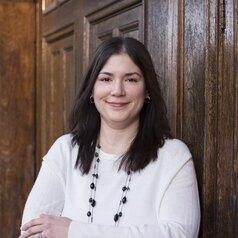
Shannon Pickett
Professor of Psychology and Licensed Mental Health Counselor, Purdue University
Shannon Pickett began her career with Purdue Global in 2021. Pickett has served in a variety of positions including professor of addictions and general psychology courses, mentorship, and Psi Chi faculty advisor. Her experience and specializations include advocacy for children and adolescent within the school system, dual-diagnosis care, and working with a diverse client population ranging from preschool-aged children through adulthood.
Less ![]()
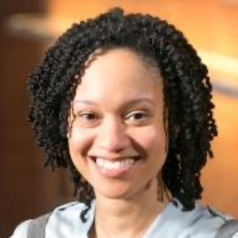
Shannon Roberts
Associate Professor of Industrial Engineering, UMass Amherst
Shannon Roberts is a trained Human Factors engineer with expertise in studying and evaluating the interaction between humans and systems within the domain of transportation safety. Much of her work is conducted with human participants in the Human Performance Laboratory’s driving simulator. Broadly speaking, her research is focused on three areas: studying and improving young drivers’ behavior, developing feedback and warning systems to improve driving behavior, and examining how advanced technology (e.g., driving automation systems) alters driver behavior. Her recent work examines how demographic variables (e.g., socioeconomic status) affect teenage drivers and how novel social influence techniques can be used to decrease their involvement in traffic crashes.
Shannon Roberts is studying teenage driving behaviors to determine what differences exist according to socioeconomic status (SES). She is developing and testing an intervention designed to improve teenage driving and use social peer influence to reinforce learning. One objective is to mitigate the health disparity between high and low SES teenagers by reducing crash risks and fatalities.
Less ![]()
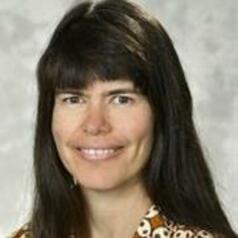
Shannon Rutherford
Associate Professor, Public Health, Griffith University
With a background in environmental science, my career has focussed on researching the links between environmental change and human health and building capacity to understand and respond at local, national and global levels. I have been involved in research to solve public health problems, from pandemic risk communication in China, mosquito-borne diseases in Kenya and Bangladesh, coastal salinity and hypertension in Bangladesh, to disasters and climate change governance in China, Philippines and Indonesia.
My leadership and expertise in climate and health has developed from working with WHO on climate and water, teaching climate and health content into university postgraduate and short courses (Bangladesh and Pakistan), master supervision (food security and climate, heat and health adaptation policy in India, hope and climate action in young Australians, digital uptake in heat sensitive populations of Australia) and HDR supervision (flood vulnerability in China, climate and infectious disease in Vietnam, climate and dengue fever in Bangladesh, climate-health adaptation policy in the Philippines, heat and worker health in garment factory workers, heat and early warning systems in older people). I lead the Climate and Health Collective, a Griffith group of multi-disciplinary researchers committed to collaboration to solve climate and health problems. This collective has led to large external research grants, WHO projects and numerous health related Climate Action Beacon projects.
My research achievements are founded on quality HDR supervision, an extensive publication track record and a collaborative research leadership approach. I am committed to leading transdisciplinary research that improves the health of communities, focussing on climate and health impact and risk management research that aligns with Griffith’s Strategic Plan 2020-2025 high level goal of ‘providing research solutions to humankind’s greatest challenges’.
I currently teach into Griffith’s Master of Public Health and Master of Global Public Health programs producing public health professions capable of addressing the many complex and diverse current and emerging health issues that we face as a global community.
Less ![]()
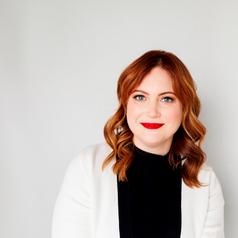
Shannon Sauer-Zavala
Associate Professor of Psychology & Licensed Clinical Psychologist, University of Kentucky
Dr. Sauer-Zavala is Licensed Clinical Psychologist with over 15 years of experience working with people struggling with anxiety and depression. She is also an Associate Professor of Psychology at the University of Kentucky (UK) where she develops new treatments for common mental health conditions and tests them in rigorous clinical trials. Dr. Sauer-Zavala is the lead developer of a short-term intervention personality difficulties to address common mental health problems – COMPASS (a loose acronym for cognitive behavioral modules for personality symptoms). Dr. Sauer-Zavala is also the Founder and Director of Compass Mental Health Training & Consulting, through which she has been invited all over the country and the world (Ireland, Portugal, Spain, United Kingdom, South Africa, Hong Kong, Japan, Russia, Brazil, Denmark, Germany, Canada) to train therapists in her potent, parsimonious interventions.
Dr. Sauer-Zavala received her doctorate in Clinical Psychology from UK in 2011; she completed her predoctoral residency at Duke University Medical Center and her postdoctoral fellowship at Boston University. Dr. Sauer-Zavala is well-regarded in her field. She has co-authored over 120 peer-reviewed articles, book chapters, and an academic book on personality. Her research has been supported by the National Institute of Mental Health (NIMH), the Canadian Institute of Health Research, and the Templeton Foundation.
You can follow Dr. Sauer-Zavala on Instagram @self.made.personality.
Less ![]()
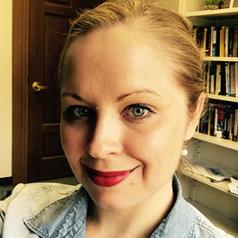
Shannon Toll
Associate Professor of Indigenous Literatures, University of Dayton
Shannon Toll is an associate professor of Indigenous Literatures and Cultures of North America at the University of Dayton. Her research interests include Indigenous literatures, film and visual culture theory, and gender studies.
Less ![]()
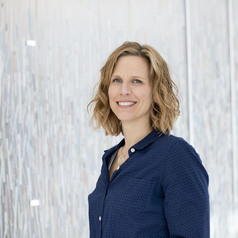
Shannon L Sibbald
Associate professor, School of Health Studies, Western University
Shannon L. Sibbald is an Associate Professor at Western University with appointments in School of Health Studies (Faculty of Health Sciences), Family Medicine and the Schulich Interfaculty Program in Public Health. As a health systems researcher, her interests span the health care continuum. Dr. Sibbald works from an ‘integrated knowledge translation’ approach involving knowledge-users, decision makers and key stakeholders throughout the research process. Her current research focuses on the implementation, spread, and sustainability of integrated models of team-based care for chronic disease management. She primarily use qualitative research methods including multiple-case comparison, narrative approach, grounded theory, content and discourse analysis. She teaches across the university at both undergraduate and graduate level.
Less ![]()
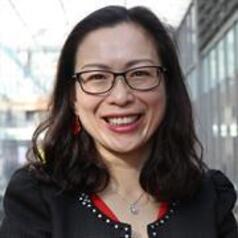
ShanShan Lin
Senior Lecturer, School of Public Health, University of Technology Sydney
Dr. Shannon Lin joined UTS in 2019 as the course director of the Graduate Certificate in Diabetes Education and Management in the Faculty of Health, with almost 20 years of experience in diabetes education and management. Before joining UTS, Shannon worked as a diabetes educator and dietitian at the University of Wollongong, Sydney Primary Health Network, Diabetes NSW and ACT, GP practices and aged care facilities. She also worked as a senior dietitian (Advanced Accredited Practising Dietitian, AdvAPD) and diabetes educator (Credentialed Diabetes Educator, CDE) at various diabetes clinics, including Indigenous outreach clinics in Coonamable/Dubbo, Bathurst and Illawarra, while working at Sydney Endocrinology. Meanwhile, Shannon has consulted aged care facilities for nearly 20 years. She started with Life for a Child (an international humanitarian organization) as a diabetes education and training specialist in 2023 to support many African and Asian countries. Shannon is also the Honorary Senior Fellow of Baker Department of Cardiometabolic Health, University of Melbourne, working with the team at the Australian Centre for Accelerating Diabetes Innovations.
Less ![]()
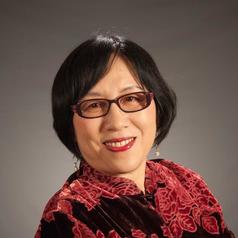
Shao Lin
Professor of Public Health, University at Albany, State University of New York
Dr. Shao Lin (MD, PhD) currently is a full Professor of both Dept. of Environmental Health Science, and Dept. of Epidemiology and Biostatistics, as well as the Associate Director for Global Health Research, School of Public Health, University at Albany (UAlbany), State University of New York. She has 25 years of experience in directing various environmental health studies and has successfully completed more than 40 projects when she worked in the New York State Department of Health and in UAlbany. As a Principal Investigator, she has directed studies assessing health impacts of various environmental exposures including natural or man-made disasters, extreme weather events, air pollution, heavy traffic exposure, residential exposure to urban air toxics from outdoor/indoor sources, and a series of school environment-health projects.
More relevantly, Dr. Lin has been acting as a Principal Investigator for over 10 federal grants investigating various disasters (September 11 Disaster, Hurricane Sandy etc.), and extreme weather events on human health. She has being involved in multiple national climate-health committees/ workgroups and was invited in the Expert Panelist of a National Climate Health Report, a President’s Workforce. She is also the reviewer of multiple top environmental health journals, Editor-in-Chief of the journal of “Hygiene and Environmental Health Advances”, and the standing members of two NIH study sections in the past 10 years. Dr. Lin has over 250 publications and has been acting as the PI/Co-PI on 27 external grants and Co-I on seven other grants.
Less ![]()
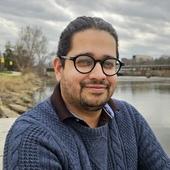
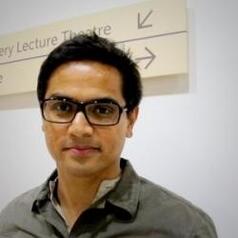
Sharath Srinivasan
David and Elaine Potter Professor, Department of Politics and International Studies, University of Cambridge
I am an interdisciplinary and applied researcher currently working on issues at the intersection of digital technology and politics in Africa. This research has been awarded funding by UK-DFID, ESRC, Wellcome Trust, Isaac Newton Trust, university-related research funds and private foundations. It has yielded numerous publications, supported six early career researchers, built international research collaborations and had notable research impact. I am co-founder and the first executive director of a non-profit spin-out from this research, Africa’s Voices Foundation (a registered charity in the UK). Now with over 25 staff in Kenya, Africa’s Voices applies digital social research methods to deliver governance programmes in East Africa worth £1+ million annually.
Grounded in political theory on civic republicanism, democracy and constitutionalism, my long-term research interest lies in unravelling how political ideas, values and interests that are embedded in the ‘built’ world – for example in digital technology applications but also institutions built by peacemakers – enable or constrain political action and the public realm. I am committed to praxis; applied interdisciplinary research collaborations that enable critical thinking and collaborative innovation. My current work with Cambridge Computer Laboratory colleagues combines political theory and human computer interaction to reimagine socio-technical systems that can be built to serve civic democracy.
I regularly contribute to wider policy and public forums, and to date have accepted close to 30 speaking invitations for university conferences, the media and policymaker/public events.
Less ![]()
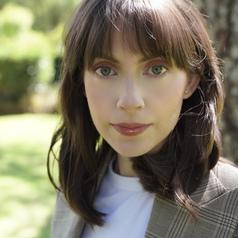
Sharayah Carter
Lecturer Nutrition and Dietetics, RMIT University
Dr Sharayah Carter is a lecturer specialising in Nutrition and Dietetics at RMIT University. With over 10 years of experience as an Accredited Practising Dietitian, she has a strong background in teaching, clinical practice, and private practice.
Sharayah earned her PhD focusing on intermittent fasting for Type 2 Diabetes treatment. Her primary goal is to explore the link between dietary patterns and chronic disease risk, empowering individuals to make informed decisions about their health.
Less ![]()
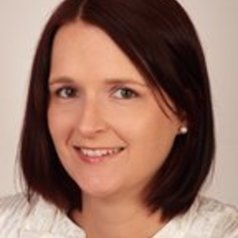
Shari L Gallop
Service Leader - Coastal, University of Waikato
I have extensive national and international research and consulting experience in coastal climate change impacts and hazards, climate change adaptation, coastal processes, and te ao Māori. My ability to combine these skills is invaluable across various commercial/research projects and advising for a broad variety of clients. I am an experienced and engaging communicator, and have a wealth of wānanga, teaching and media experience. I co-lead Te Komiti Māori in the New Zealand Coastal Society, and continue to engage in research including postgraduate student supervision. I am a Coastal Service Leader at Pattle Delamore Partners (PDP) in Tauranga, New Zealand and honorary lecturer at the University of Waikato.
Less ![]()
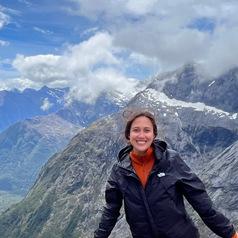
Sharmaine Verhaert
PhD Candidate, Geology, University of Adelaide
PhD student at the University of Adelaide.
Less ![]()
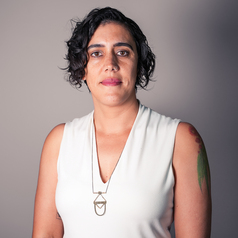
Sharmilla Bargon
Social Justice Practitioner in Residence/Senior Solicitor, University of Sydney
Sharmilla Bargon is a specialist employment and discrimination law practitioner. She is a Senior Solicitor at Redfern Legal Centre and coordinates the Employment Rights Legal Service, a statewide employment rights service in NSW. She is passionate about assisting migrant workers and working on broader law reform campaigns to achieve systemic change. She was awarded NSW Women Lawyer Community Legal Centre Lawyer of 2023 and in the same year was one of the first joint Social Justice Practitioners-In-Residence at USYD law school working on a research project looking into the use of non-disclosure agreements in resolving sexual harassment matters, as is hoping to use this work to advocate and reform legal practice.
Less ![]()
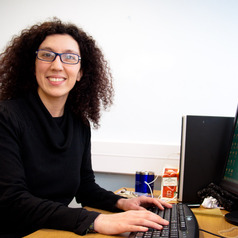
Sharon Coen
Sharon is a Senior Lecturer in Media Psychology at the University of Salford. She has recently joined the Media Psychology team to continue and expand her research interests in Media Psychology at the heart of the media and digital scene at the University’s MediaCityUK campus.
She obtained her ‘Laurea’ degree in Psychology at the Universita’ degli Studi di Padova, where she worked under the supervision of Professor Anne Maass on a Master level project entitled ‘Attitude measures and behaviour: Which connection? A study about religious intergroup relations’.
In 2007 Sharon obtained her PhD in Social Psychology at the University of Sussex where she worked under the supervision of Professor Rupert Brown. Her thesis was entitled: ‘Collective Guilt and Shame in Intergroup relations. The effects of group based guilt and shame on intergroup attitudes and prosocial behaviour’. Between October 2007 and January 2012 she worked at Christ Church University in Canterbury as a Lecturer and then a Senior Lecturer in Psychology.
Less ![]()
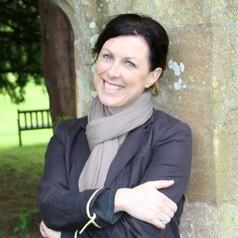
Sharon Crozier-De Rosa
Professor, University of Wollongong
Sharon Crozier-De Rosa is Professor in History at the University of Wollongong. Her books include Remembering Women’s Activism (with Vera Mackie 2019), Sources for the History of Emotions (with Peter Stearns and Katie Barclay 2020), On Behalf of the People of Ireland: Celebrating the 75th Anniversary of Irish-Australian Diplomacy (with Jeff Brownrigg 2022), and Shame and the Anti-Feminist Backlash (2018). Her chapters and articles cover a range of topics from woman hate, and feminist and anti-feminist uses of history, to anger and resentment, abortion activism, and the colours of protest, and have been translated into German and French. She has chaired the prize committee for the Australian Women’s History Network (AWHN), researched for The Guardian, and has held fellowships and visiting positions at the National Library of Australia, the State Library of NSW, Australian National University and the Max Planck Institute for the History of Emotions, Berlin. An Irish migrant, she currently serves as President of the Irish Studies Association of Australia and New Zealand (ISAANZ).
Less ![]()
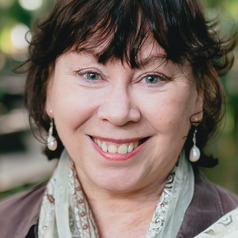
Sharon Dawe
Professor of Clinical Psychology, Griffith University
Research expertise:
Substance misuse and mental health
Psychosis and substance use
Parenting in high risk families
Impulsivity and substance use
Biological basis of personality
Less ![]()
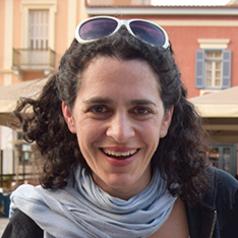
Sharon Geva
Senior Lecturer in Psychology and Neuroscience, Anglia Ruskin University
Sharon is a cognitive neuroscientist, with an interest in language and memory across the lifespan. She is studying cognitive processing and impairments following brain damage, using neuropsychological testing and brain imaging techniques.
Sharon joined ARU as a Senior Lecturer in 2022. Prior to this, she worked at University College London as a Post-Doctoral Research Fellow, first at the Institute of Child Health, and then at the Wellcome Trust Centre for Human Neuroimaging.
She works with both paediatric and adult populations, combining structural and functional Magnetic Resonance Imaging (MRI) with neuropsychological testing.
Sharon studies brain mechanism underlying speech and language impairments and recovery after stroke. She also studies the variability in inner speech in healthy adults and post-stroke, with special interest in the relation between inner speech and other aspects of cognition.
She is a member of the ARU Centre for Mind and Behaviour.
Less ![]()
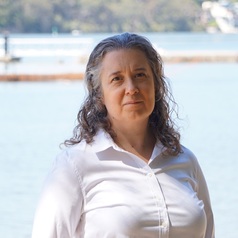
Sharon Hook
Principal Research Scientist, CSIRO
My research interests include applying modern –omics based approaches to environmental problems, determining the impacts of low level exposures in generating long term ecologically relevant toxic responses, and in the appropriate design and implementation of toxicity testing.
Less ![]()
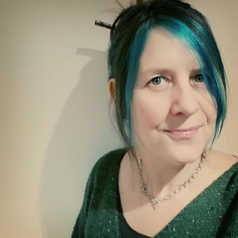
Sharon Jagger
Lecturer in Religion, York St John University
Having gained my PhD in Women's Studies at the University of York I am now full time lecturer in Religion at York St. John University. My PhD focused on female clergy in the Church of England, and how women are negotiating and influencing the androcentric nature of the structure of the Church and its language and symbols. My current research interests are around women's spirituality, particularly with reference to the feminine divine.
As a feminist researcher, and have worked on other research projects including women in the music industry, and gender and performance. As a long-standing professional performer, with an interest in research as practice, I write, in a number of formats, about cultural discourses and gender representation.
I am currently researching the experiences of working-class clergy and in a separate project, laywomen's experience of parishes that do not support women's leadership or ordination.
Less ![]()
- Market Data























